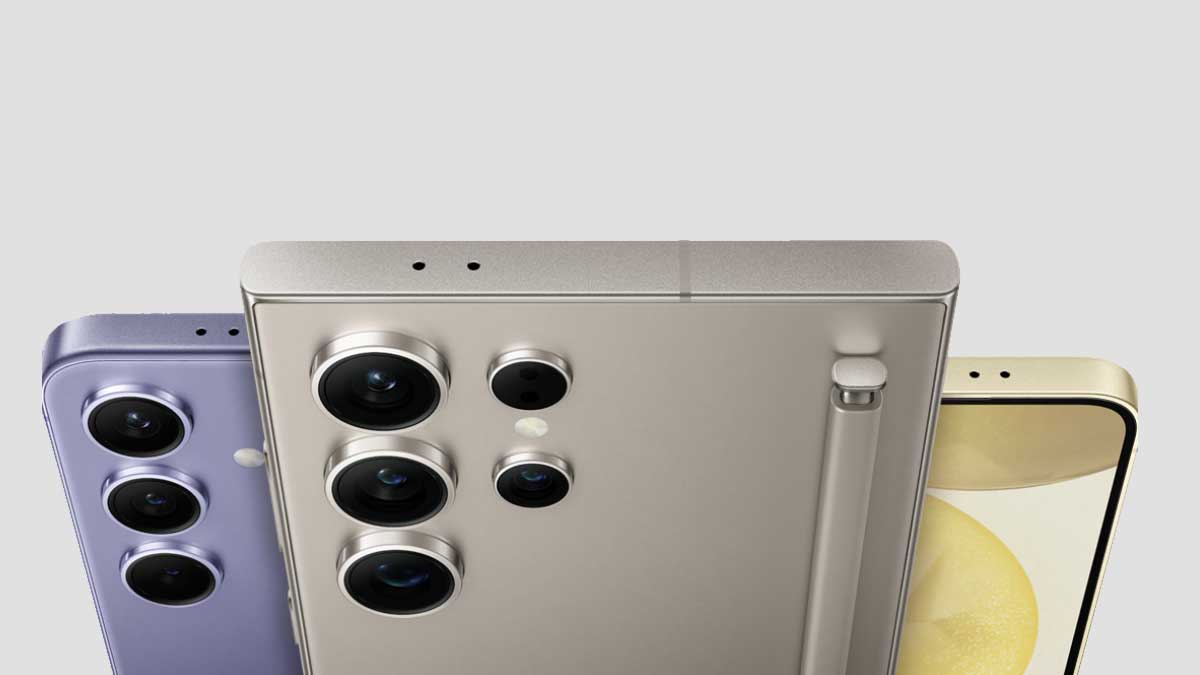- Home
- Billionaires
- Investing Newsletters
- 193CC 1000
- Article Layout 2
- Article Layout 3
- Article Layout 4
- Article Layout 5
- Article Layout 6
- Article Layout 7
- Article Layout 8
- Article Layout 9
- Article Layout 10
- Article Layout 11
- Article Layout 12
- Article Layout 13
- Article Layout 14
- Article Sidebar
- Post Format
- pages
- Archive Layouts
- Post Gallery
- Post Video Background
- Post Review
- Sponsored Post
- Leadership
- Business
- Money
- Small Business
- Innovation
- Shop
Recent Posts
Samsung’s Android 15 Delay Disappoints Galaxy Users

Samsung has recently delivered disappointing news for its vast base of Galaxy smartphone users, confirming that they will continue to lag behind competitors like Google’s Pixel and Apple’s iPhone in terms of software updates and features. Many users who invested over $1,000 in Samsung’s latest flagship devices may find this development particularly disheartening.
Just last week, there were hopes surrounding the imminent release of Samsung’s One UI 7 Beta, which serves as a preview for Android 15. However, this release has been delayed longer than anticipated, especially with the Samsung Developer Conference (SDC) set to begin this week. The company’s latest statement confirmed that the One UI 7 Beta will only be available to developers before the year concludes, dashing expectations for a wider rollout. This update is expected to bring essential security and privacy enhancements, but with current threats on the Android platform continuously evolving, any delays in these updates are seen as concerning.
The situation has worsened, as Samsung has now indicated that the full Android 15 release will not arrive until next year. Users can anticipate the official version of One UI 7—complete with game-changing artificial intelligence features—launching alongside the next Galaxy S series, specifically the S25. While users of the recently released S24 can look forward to this update, it is likely to be a bittersweet experience, given that users of other brands, including Pixel users, will benefit from these advancements much sooner.
Compounding the disappointment is the revelation that Google is teasing an earlier-than-usual rollout for Android 16. This development raises critical questions about how Samsung will manage to catch up, especially as its Android 15 rollout remains behind schedule. This gap puts Samsung at a significant disadvantage in the fast-paced smartphone market, where timely software updates can greatly influence user satisfaction and device performance.
Another crucial point for Galaxy users is the uncertainty surrounding which features and security enhancements will be included in Samsung’s version of Android 15. Notably, some of the new security and privacy upgrades—such as live threat detection and cellular network defense—may not necessarily be available on Samsung devices at launch. The cellular network defense feature, which alerts users to potential rogue network connections, represents a commendable step forward in user security. However, live threat detection stands out as Google’s most substantial effort to bolster security, positioning itself as a more secure alternative to Apple’s iPhone. This feature promises to provide enhanced AI-driven protection for users, a development that is highly sought after in today’s security-conscious environment.
Samsung is also making strides with its Knox Matrix, a multi-device security initiative that the company plans to showcase at the upcoming SDC. This feature aims to enhance the interconnectedness of Samsung devices, creating a more cohesive ecosystem that may prove difficult for users to abandon once they invest in it. This strategy echoes Apple’s successful model of a tightly integrated ecosystem, reinforcing user loyalty through enhanced security and seamless functionality.
Despite these advancements, Samsung users are left waiting for clarity regarding the comprehensive deployment of Android 15. The ongoing uncertainty surrounding whether all the anticipated security and privacy improvements will be incorporated into their devices remains a significant concern. In the meantime, it is evident that Samsung is taking proactive measures to strengthen its Android ecosystem in advance of any OS upgrades. However, the shift towards default maximum security settings has led to complications, including a lawsuit from Epic Games, which alleges that Samsung and Google are collaborating to create barriers that hinder the installation of third-party applications.
Overall, this situation paints a mixed picture for Samsung users, who are navigating a landscape filled with rapid advancements in smartphone technology. With competitors like Google and Apple pushing ahead, Samsung’s delays in software updates could affect user experience and satisfaction. While the company continues to innovate with features such as Knox Matrix and enhanced security measures, the prolonged wait for major updates like One UI 7 leaves many Galaxy users feeling frustrated.
As Samsung strives to maintain its position in the competitive smartphone market, it must work diligently to bridge the gap between its offerings and those of its rivals. Users expect timely updates that not only enhance the functionality of their devices but also ensure their security in an increasingly digital world. The upcoming months will be critical for Samsung as it seeks to reassure its customer base and address concerns regarding software delays and feature rollouts. In an era where smartphone technology is evolving at an unprecedented pace, staying ahead of the curve is essential for sustaining user loyalty and satisfaction.
Recent Posts
Categories
- 193cc Digital Assets2
- 5G1
- Aerospace & Defense46
- AI37
- Arts3
- Banking & Insurance11
- Big Data3
- Billionaires446
- Boats & Planes1
- Business328
- Careers13
- Cars & Bikes76
- CEO Network1
- CFO Network17
- CHRO Network1
- CIO Network1
- Cloud10
- CMO Network18
- Commercial Real Estate7
- Consultant1
- Consumer Tech180
- CxO1
- Cybersecurity68
- Dining1
- Diversity, Equity & Inclusion4
- Education7
- Energy8
- Enterprise Tech29
- Events11
- Fintech1
- Food & Drink2
- Franchises1
- Freelance1
- Future Of Work2
- Games141
- GIG1
- Healthcare78
- Hollywood & Entertainment186
- Houses1
- Innovation42
- Investing2
- Investing Newsletters4
- Leadership65
- Lifestyle11
- Manufacturing1
- Markets20
- Media193
- Mobile phone1
- Money13
- Personal Finance2
- Policy567
- Real Estate1
- Research6
- Retail1
- Retirement1
- Small Business1
- SportsMoney33
- Style & Beauty1
- Success Income1
- Taxes2
- Travel10
- Uncategorized8
- Vices1
- Watches & Jewelry2
- world's billionaires415
Related Articles
Google Adds AI Scam Detection to Chrome After FBI Warning
In response to an alarming warning from the FBI about the growing...
By 193cc Agency CouncilDecember 20, 2024Google Alerts Gmail Users to Surge in Phishing Attacks
Google has issued a warning to its 2.5 billion Gmail users about...
By 193cc Agency CouncilDecember 20, 2024LockBit Ransomware Resurgence Set for February 2025
If you believed that law enforcement had successfully dismantled the notorious LockBit...
By 193cc Agency CouncilDecember 20, 2024Elon Musk’s Xmail Teaser Sparks Gmail Security Concerns
A seemingly innocuous post on X (formerly Twitter) by Elon Musk on...
By 193cc Agency CouncilDecember 16, 2024















Leave a comment